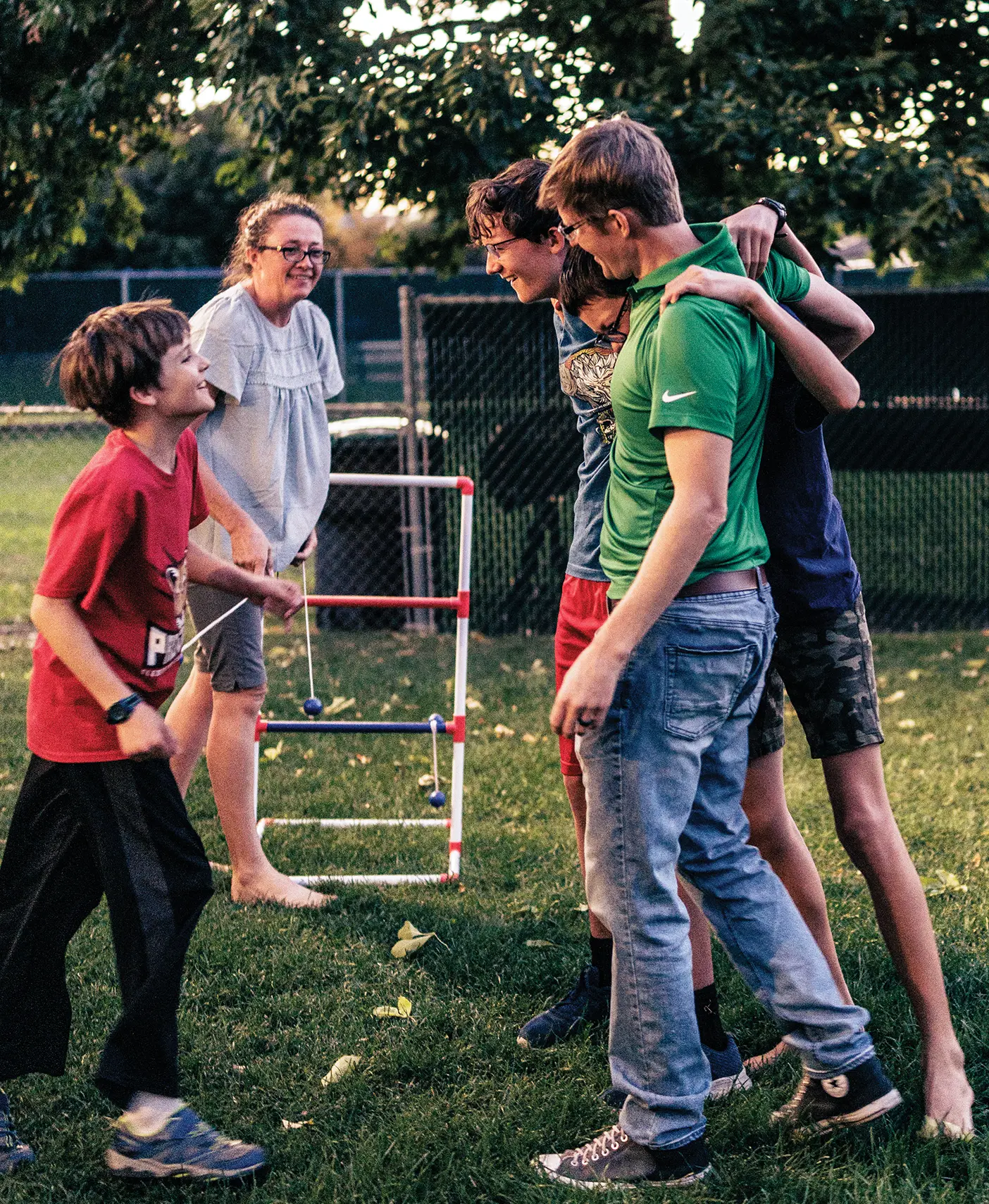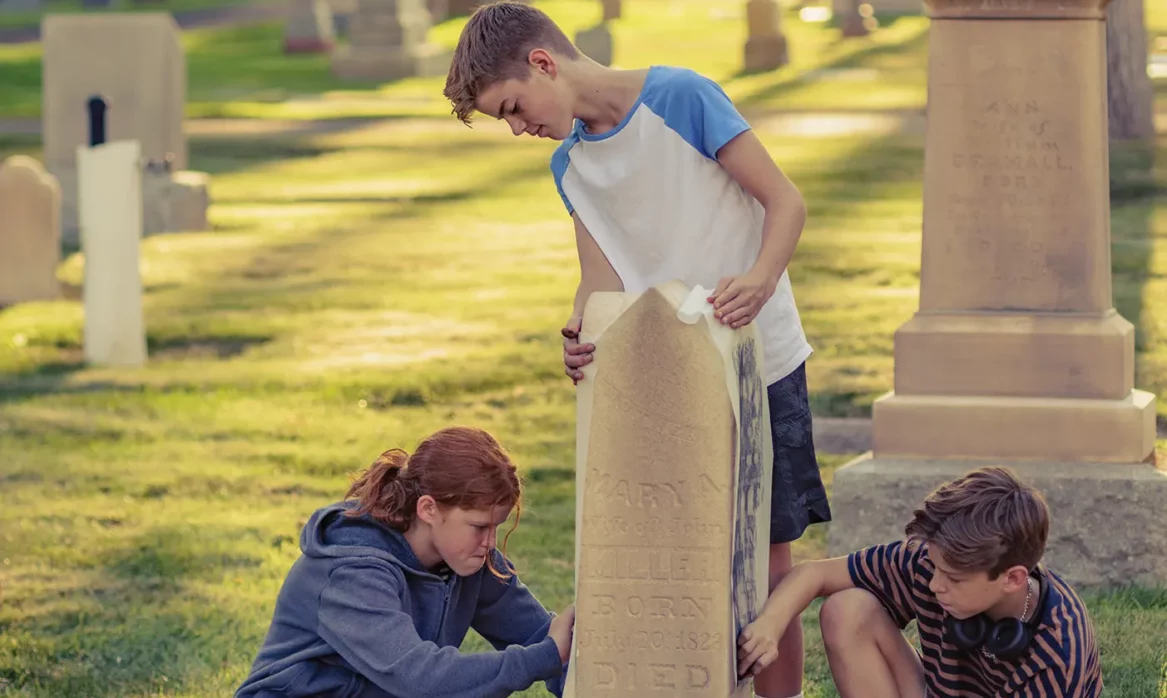Here are four ideas to help make quality time and strengthen relationships.

School drop-offs, soccer practices, piano recitals—in a world where families are racing through an obstacle course of competing schedules, finding opportunities for meaningful family time can feel impossible. Yet these shared moments might just be the antidote to today’s fast-paced culture.
Thoughtful families aspire to connect by intentionally taking time to pray, study scriptures, serve others, and engage in recreational activities together. Prioritizing essential family time requires concerted effort, says Loren D. Marks (BS ’97, MS ’99), BYU professor of family life.
“It’s not enough to want a close-knit family. We’ve got to do it,” says Marks, who leads the American Families of Faith Project with fellow BYU professor David C. Dollahite (BA ’83, MS ’85). “It’s got to be focal and intentional but still fun.”
It can be tough work, but the relationship rewards are significant. Several research studies by Marks and Dollahite, as well as large-scale surveys by BYU’s Wheatley Institute have found that families who spent weekly time together participating in worship and family rituals such as family dinner and weekly movie nights reported higher satisfaction in marital and parent-child relationships. In addition, a book published by the Oxford University Press by a trio of non–Latter-day Saint researchers noted that religious activities such as family home evenings were one of the most successful ways of nurturing children and establishing a connected family.
“When we clear out space and time for family worship,” says Marks, it “is a living manifestation to our children, to our spouse, and to ourselves that family and faith truly are what matter most.” For families seeking to shift from the fast lane (even temporarily) to create and maintain weekly family rituals and worship, Marks offers four suggestions.
1. Be intentional and consistent. It’s okay if every family activity isn’t a slam dunk—it’s most important, says Marks, for parents to provide space and structure for family time. “Kids know it’s hard. . . . When they see you put time into a family ritual, that sends an important message that family is vital.”
2. Invite kids to share their ideas for family activities. Kids are the “fun experts” says Marks—including them in planning for family activities can be the catalyst to successful family bonding. “If parents are willing to listen and give kids creative input, things tend to be more fun.”
3. Make time for one-on-one relationships. Marks says these informal times are opportunities for children to speak freely with a parent and be open about things they might not want to share around the dinner table. “If you’ve got to run to the grocery store, invite a child to come along with you. There are so many pivotal things that can happen in one-on-one chats.”
4. Enrich spiritual instruction in your home with resources like Come, Follow Me lessons, Bible and Book of Mormon videos, and Church magazines. “As one former student told me, ‘Family worship isn’t meaningful every time, it’s meaningful over time,’” says Marks.












